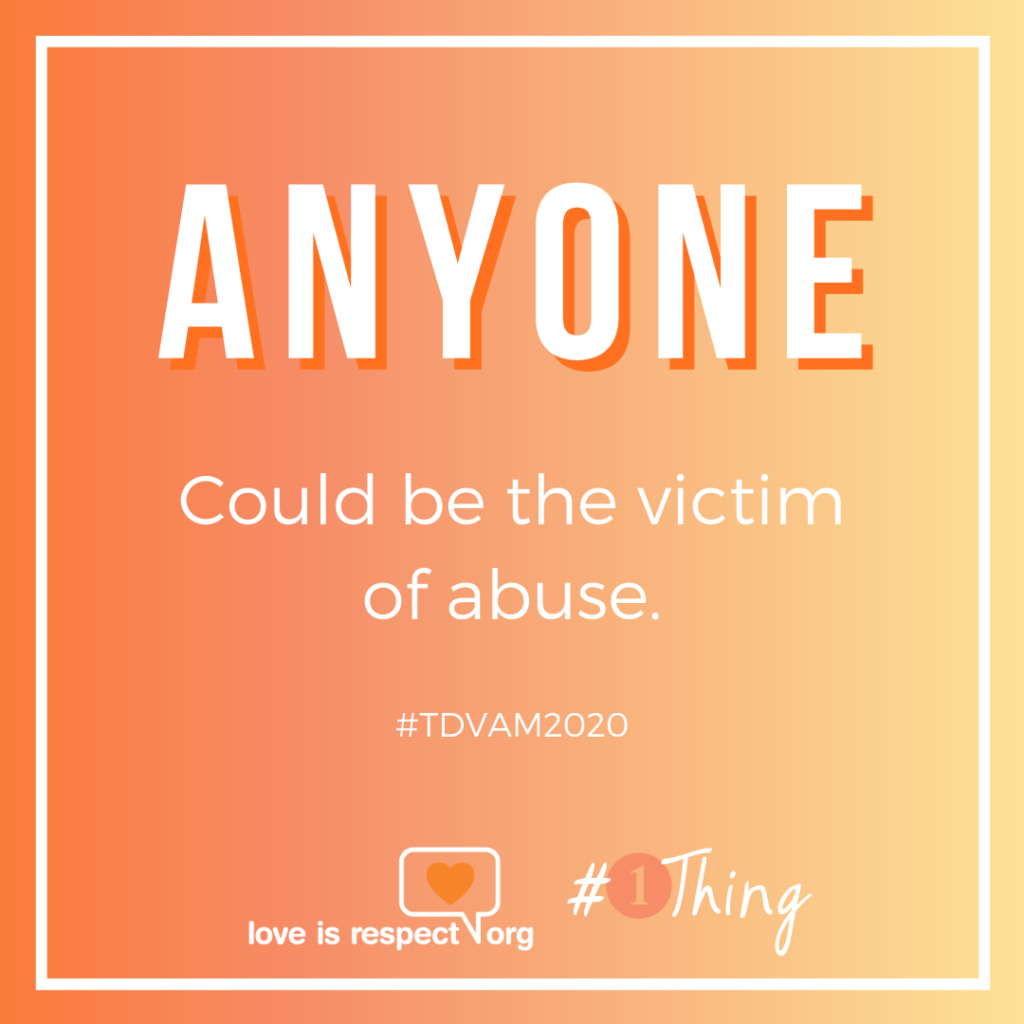By Sammie Gallo, Creator of Abundant Life: You Were Made For More
February is Teen Dating Violence Awareness Month, or TDVAM for short.

Every February across the United States, teens and those who support them join together for a national effort to raise awareness to teen dating violence. Dating violence is more common than many people think. One in three teens in the U.S. will experience physical, sexual, or emotional abuse by someone they are in a relationship with before they become adults. And nearly half (43%) of college women report experiencing violent and abusive dating behaviors. By joining together every February, we can spread awareness and stop dating abuse before it starts!
Dating abuse is a pattern of destructive behaviors used to exert power and control over a dating partner. While we define dating violence as a pattern, that doesn’t mean the first instance of abuse is not dating violence. It just recognizes that dating violence usually involves a series of abusive behaviors of a course of time.
There are so many organizations fighting for teens to know what healthy relationships look like, and while we don’t agree with all the values that those other organizations hold, we do agree that every single teenager needs to be educated about where healthy relationships start AND what the real definition of love is. Without knowing love… well, we can pretty much bet that we’re going to spend a lot of time chasing things the world has convinced us are love but will actually never measure up.
Every relationship is different; therefore, abuse never really shows up in the same way from relationship to relationship. However, there are some factors and warning signs that can be traced through all of them:
- Physical Abuse: Any intentional use of physical force with the intent to cause fear or injury, like hitting, shoving, biting, strangling, kicking or using a weapon.
- Verbal or Emotional Abuse: Non-physical behaviors such as threats, insults, constant monitoring, humiliation, intimidation, isolation or stalking.
- Sexual Abuse: Any action that impacts a person’s ability to control their sexual activity or the circumstances in which sexual activity occurs, including rape or coercion.
- Digital Abuse: Use of technologies and/or social media networking to intimidate, harass or threaten a current or ex-dating partner such as demanding passwords, checking cell phones, cyberbullying, non-consensual sexting, excessive or threatening texts or stalking on social media.
- Stalking: Being repeatedly watched, followed, monitored or harassed. Stalking can occur online or in person and may or may not include giving unwanted gifts.
- Financial Abuse: Exerting power and control over a partner through their finances, including taking or withholding money from a partner, or prohibiting a partner from earning, or spending their money.
This year, in an effort to really get the word out about dating abuse, we’ve created the theme #OneThing, which is focused on meeting teens where they are at and making sure that every student learns something about dating violence that they can go share with a friend. By learning just one thing about teen dating violence and sharing that with a friend, every person can make a difference. We’re starting at square one together to build healthy relationships from the ground up. By just learning or doing one thing, you can start a conversation about healthy relationships in your friend circles, schools, and communities. Everyone has a part in ending dating abuse, even if that one thing seems small in the moment.
As a parent, youth leader, or teacher, knowing or even suspecting that a child or teen that you know is in an unhealthy relationship can be both frustrating and frightening. It can be hard to know what steps to take or even how to start the conversation. The one thing that I want to encourage each of you with is that students know you are vital and key influencers in their decision making. In a recent website poll, students revealed that they sought out help for dating violence because a teacher or mentor referred them to the site. You’re critical in helping teens develop healthy relationships, and you can provide life-changing support if they are in an abusive relationship.
With so many people speaking in one unified voice during the month of February about teen dating violence, this raises our collective awareness about this critical issue. Only through collaboration will it be possible to stop teen dating abuse.
*If you or a loved one is in an abusive relationship, help is available. Call 866.331.9474 or text “loveis” to 22522.

Sammie graduated from Robert Morris University in 2017 with a background in biology and psychology and started working with Anglicans for Life (AFL) shortly after. In addition to her work with AFL, she spends time going into public schools with the Women’s Choice Network, speaking to high schoolers about healthy relationships and sex education.
Sammie married her best friend, Juan Gallo, in May 2019. During her free time, you can find her leading youth ministry with her husband at their church, where he serves as the youth pastor.
Sammie spends her day-to-day making sure that every person hears and believes the words: “you were made for more.” You can follow Sammie on Facebook, Instagram, and Twitter! She’d love to get to know you!
